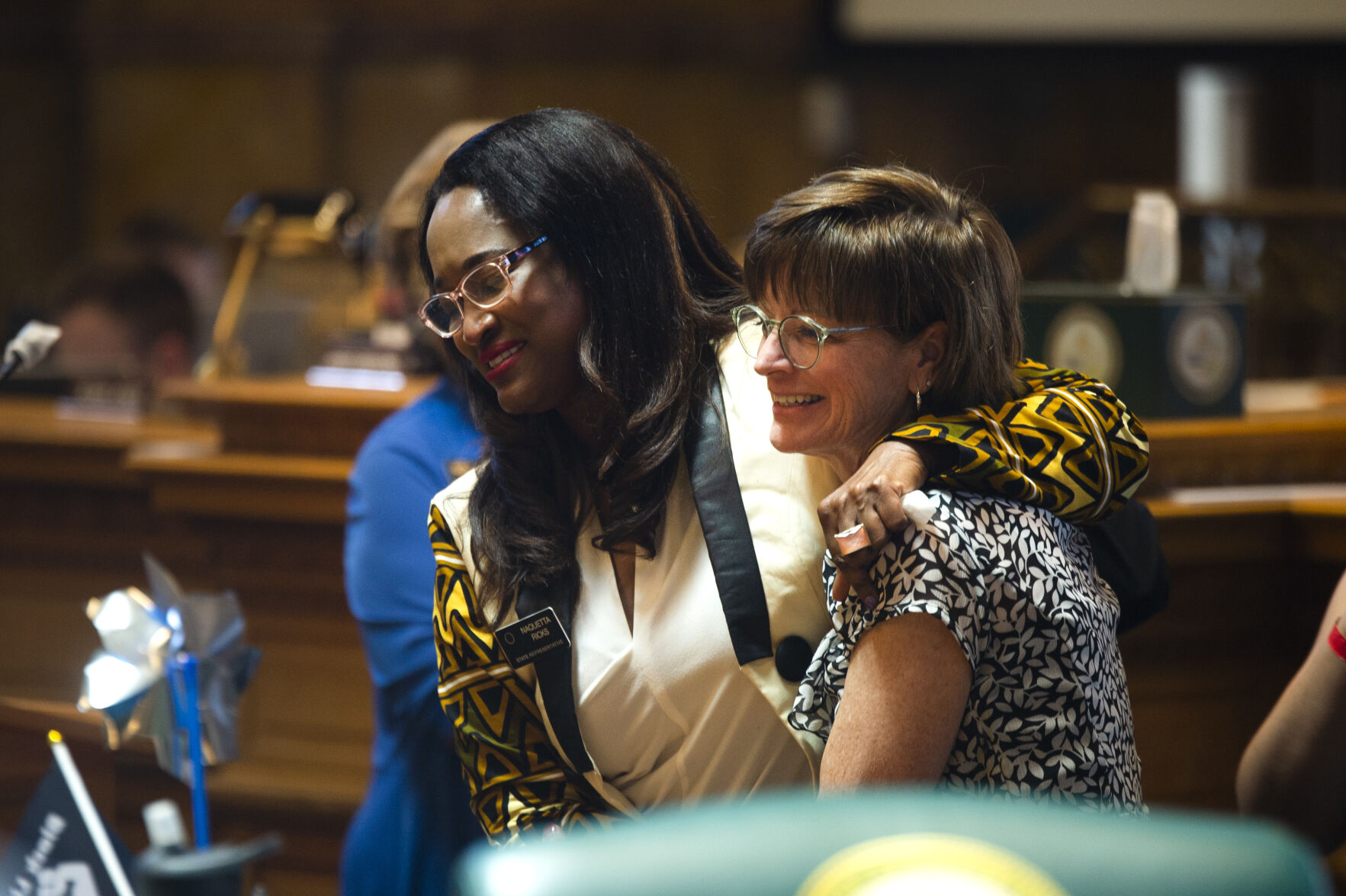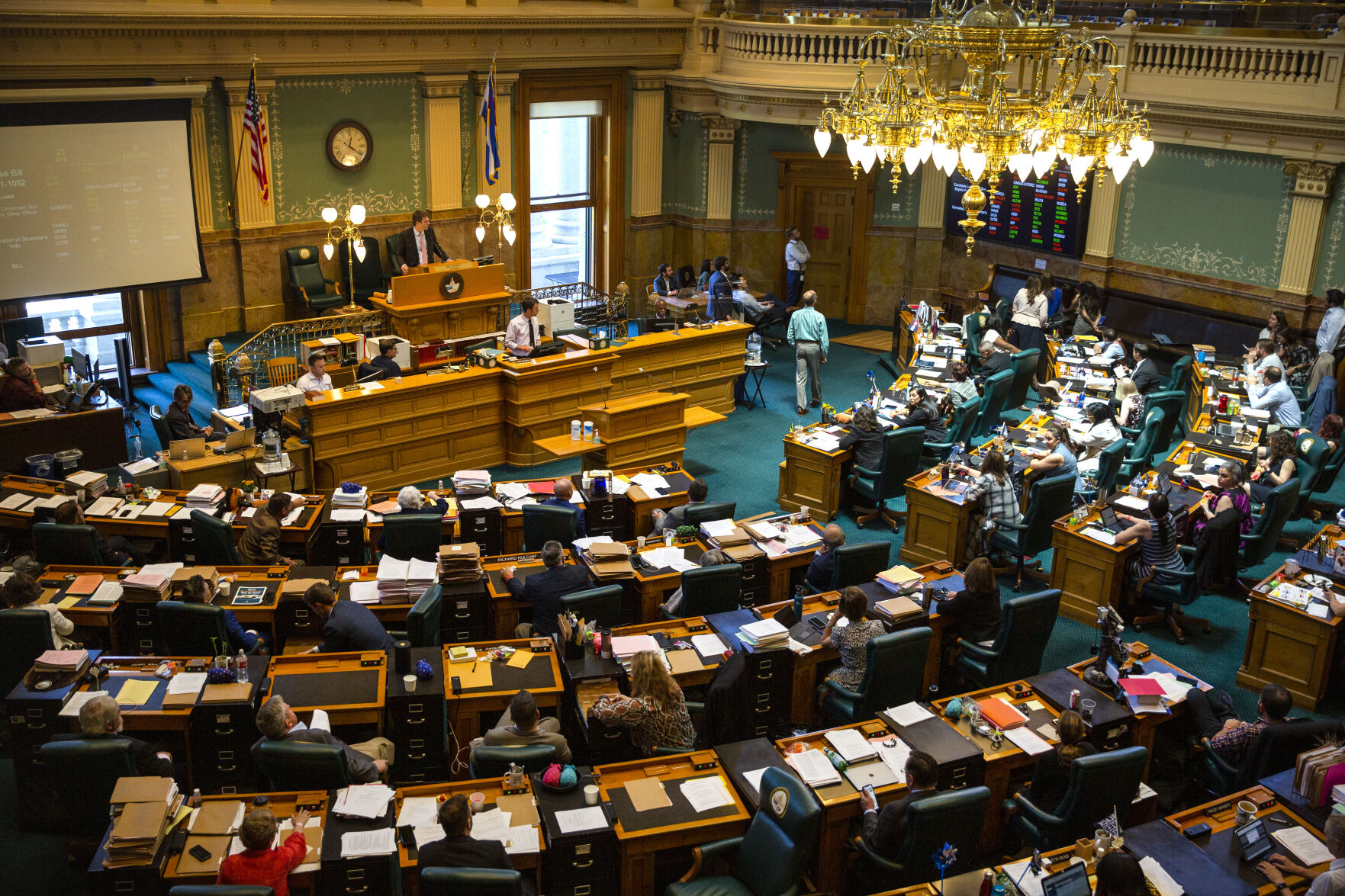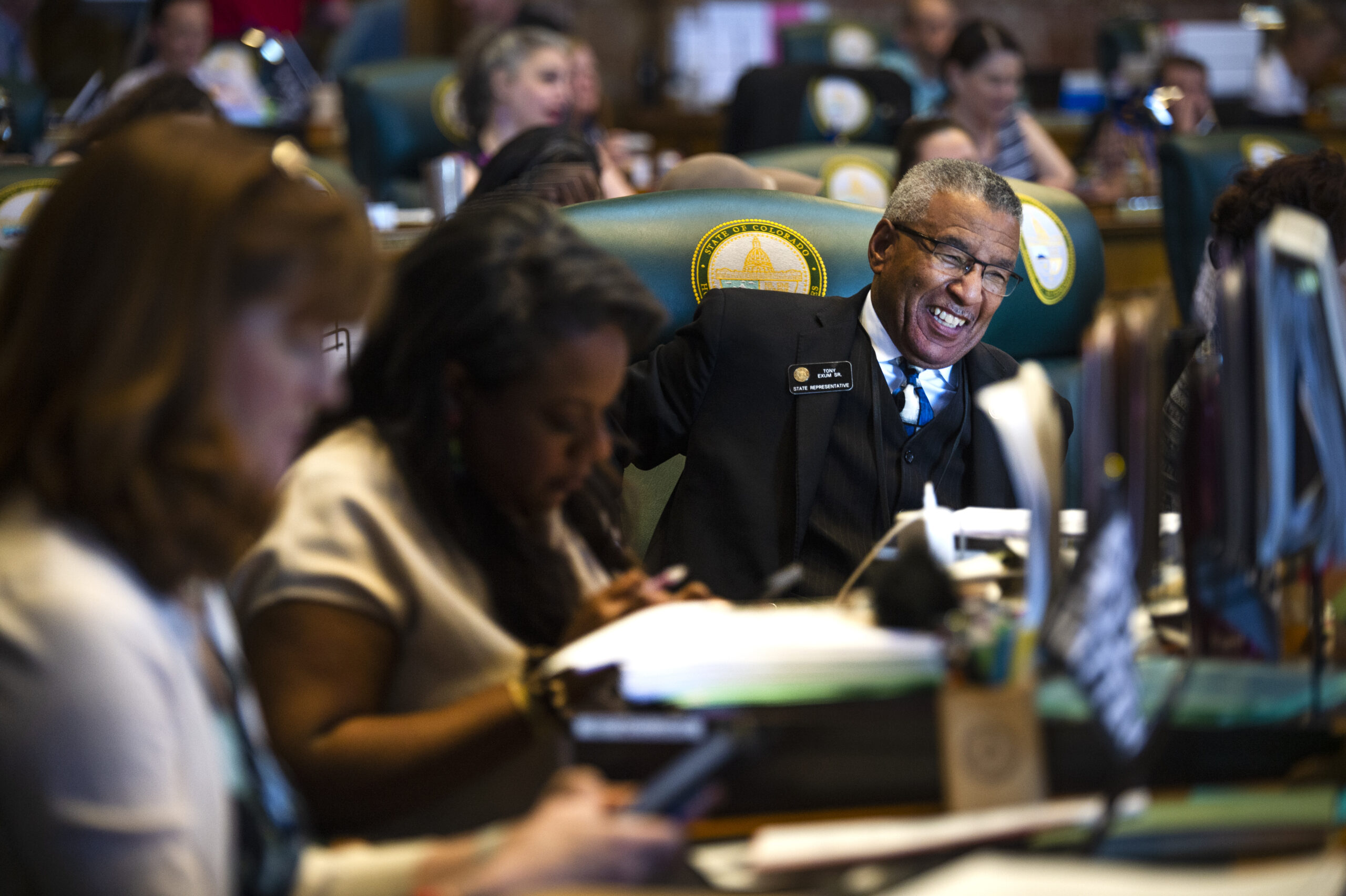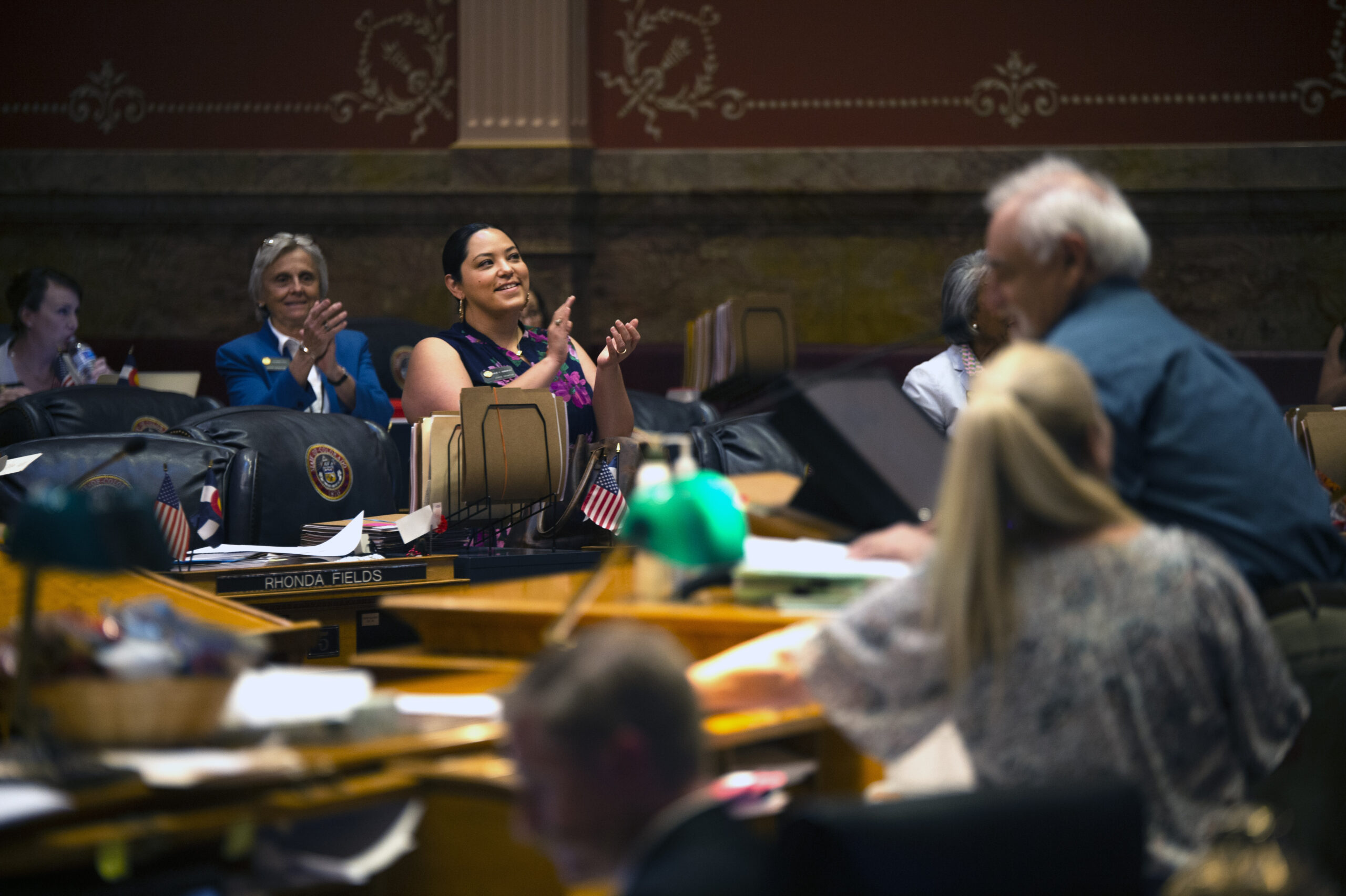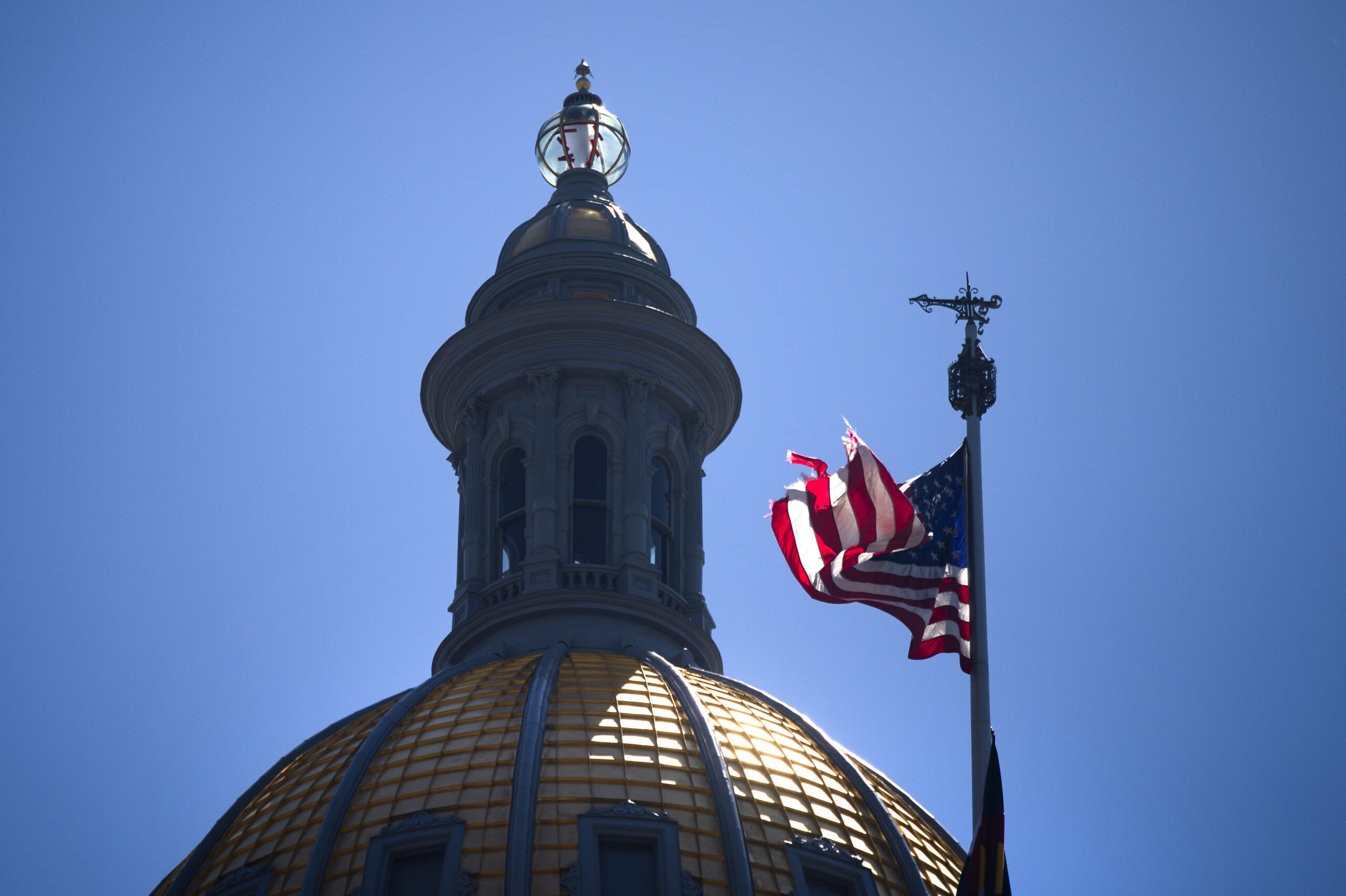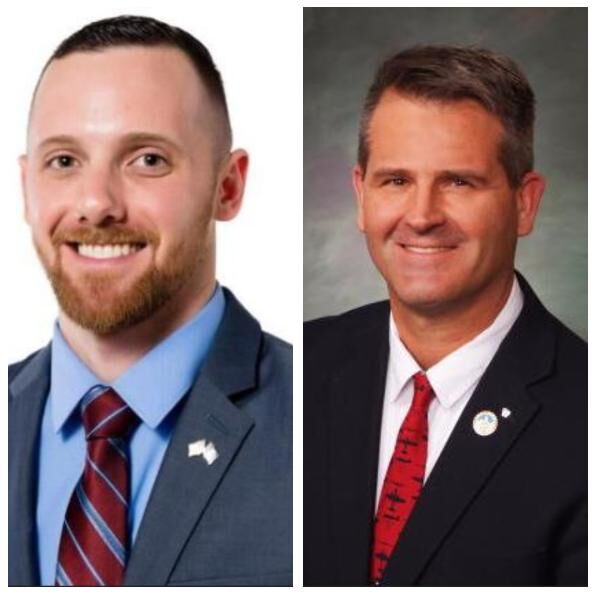LEGISLATIVE WRAPUP | What went down under the Gold Dome, and where does it lead?
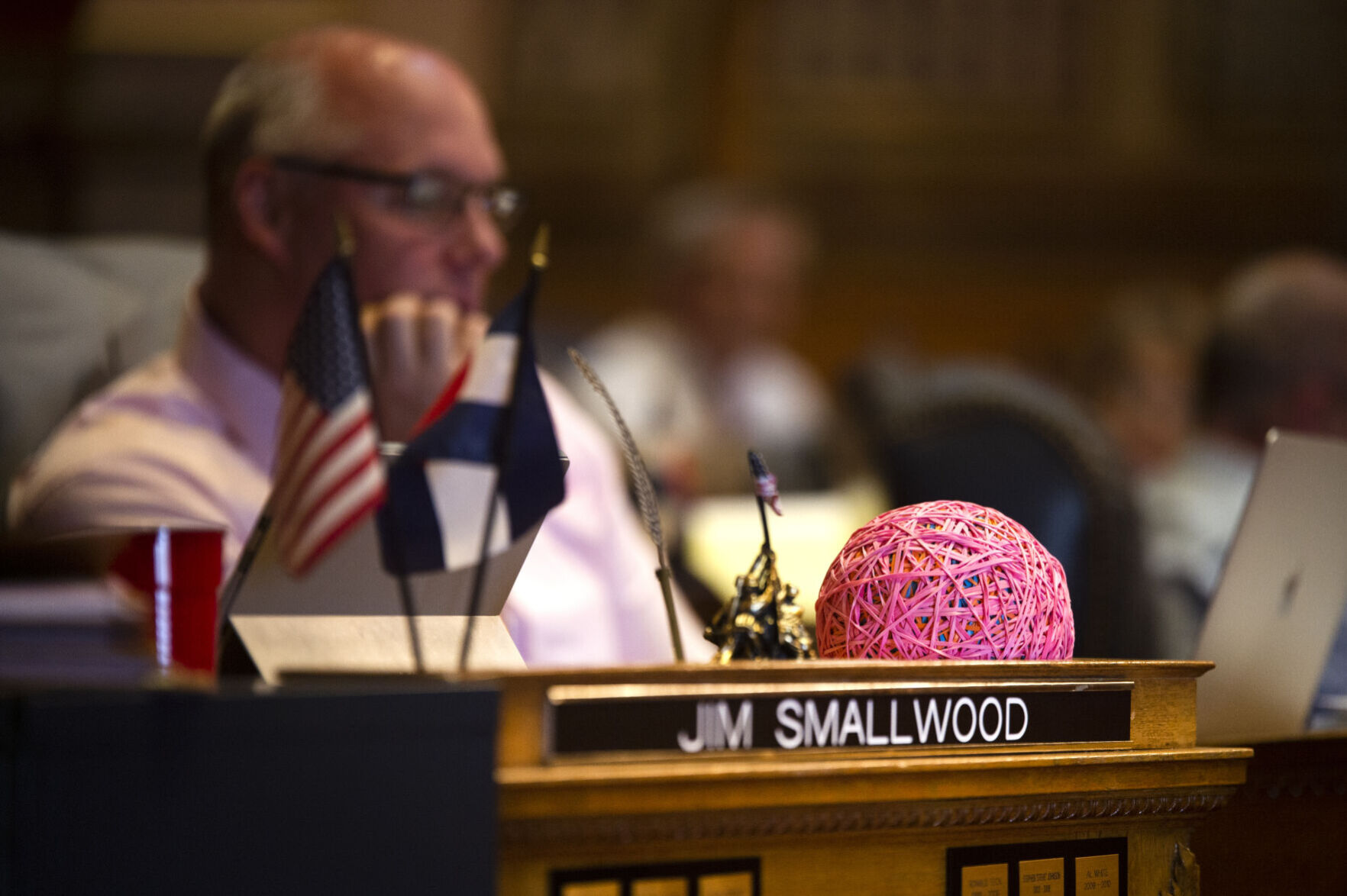
At the end of each legislative session, lawmakers drop several giant balls made of hundreds of rubber bands from just beneath the Capitol’s Gold Dome.
Down it falls, past the legislators gathered around the third and second floors, past the governor’s office staff on the first, ricocheting off the floor and back up two or three floors.
A wave of whoops and moans follow the ball down and back up in the direction it came. It’s a traditional release after days of negotiating, rivalries and hurt feelings.
It happened Tuesday night in Denver.
The politics and governance from the previous 116 days was much the same: Issues around the economy, health care, guns and taxes rose and fell with an unpredictability seemingly driven by gravity, only at a more forceful clip this year.
Money has that effect on state government, and after a year of worrying and cutting in 2020, the General Assembly let the good times roll in 2021.
State stimulus
In the wake of the rapid spread of COVID-19, state-ordered lockdowns and a corresponding economic crisis, lawmakers last session were forced to make difficult choices as they slashed $3.4 billion in general funds from the state budget.
But as the fiscal year went on, economic indicators improved to the point where the March 19 forecast “told us the bounce back has been pretty strong,” according to Joint Budget Committee Vice Chair Rep. Julie McCluskie, D-Dillon.
That gave lawmakers an opportunity to respond to a reawakening economy with a 40-odd bill package aimed at kickstarting post-pandemic life. Funded with dollars left over from 2019 tax receipts, the $800 million Colorado Recovery Plan stimulus package brought together lawmakers from both sides of the aisle with bills ranging from infrastructure to education to workforce revitalization.
Not all were universally beloved – see objections from House Republicans to a bill investing in the arts and cultural centers or Sen. Barb Kirkmeyer, R-Brighton, labeling a bill that would fund hotels for the homeless as an attempt by Department of Local Affairs to “gouge us for another four (full-time employees).”
But the package did give lawmakers a chance to infuse large sums into different sectors of the state while taking the first steps toward paying for some of the state’s largest and most underfunded priorities.
Take just transition, a 2019 plan devised to support workers and communities reliant on jobs in coal mines and factories as the state transitions to cleaner sources of energy. The program wasn’t funded, however, because it depends on gifts, grants and donations, and programs that rely on donors often don’t last long past the bill-signing ceremony, statehouse politicos joke.
“I think even calling it just transition, even though I carried that damn bill with that name, I think is an affront of the people we’re trying to help,” said Sen. Kerry Donovan, D-Vail, while excoriating Colorado Energy Office executive director Will Toor during an April hearing on Senate Bill 200, the session’s most ambitious and ultimately shelved greenhouse gas emissions bill.
Ask and receive
Major investments courtesy of the stimulus, however, aren’t nearly enough, a point the bill sponsors – some of the most influential lawmakers in the Capitol – attested to.
Take House Bill 1290, which pumps $15 million into the just-transition kitty.
House Majority Leader Daneya Esgar of Pueblo repeatedly said the just transition funding was only a drop in the bucket in terms of the overall need.
House Bill 1260 puts $20 million into the long-neglected Colorado Water Plan. While House Speaker Alec Garnett of Denver praised the investment, he pointed out the plan to manage, conserve and store the state’s most valuable resource calls for an estimated $100 million a year.
The state has never hit that benchmark since the plan was approved without a dedicated funding source in 2015, putting in $30 million in 2019. Most of that came from severance taxes paid by oil and gas companies, a primary funder of water projects in Colorado.
House Bill 1289 puts $75 million into expanding broadband to the furthest reaches of state.
Rep. Chris Kennedy of Lakewood was dismayed to hear testimony on his broadband bill that that amount, though the highest of any highest price tag in the stimulus package, wouldn’t even cover the needs of lightly populated Montezuma County.
Lawmakers might rethink the spending down the line, as federal stimulus money is still coming in. At some point, however, one-time money will run dry, and lawmakers will once again have to reach into the state’s pockets. Their actions at that point will speak volumes.
Criminal justice reform
In a session where some of the biggest and most pressing issues facing the state dominated the headlines, criminal justice reform dipped slightly off the radar. But make no mistake, the 2021 legislative session was transformative in terms of the way justice is administered in Colorado.
Misdemeanor classification reform. A follow on last session’s landmark police accountability measure. Restrictions on the use of chemical restraints such as ketamine. Changes to first-degree murder classifications. A higher limit for marijuana possession offenses and sealing of prior records for that crime. Expansion of a parole program for those who commit felonies when they are young.
All of those and many more cleared the legislature and have either been signed into law or sit on Gov. Jared Polis’ desk after hours of stakeholding, negotiations and debate.
But perhaps no criminal justice reform measure generated more interest on both sides of the issue than Sen. Pete Lee’s effort to overhaul the pre-trial detention system.
The legislation from the Colorado Springs Democrat sought to clamp down on the use of arrests and cash bail. He pitched it as a dual-benefit effort: it would end the criminalization of poverty wherein offenders who commit low-level offenses are kept in jail because they can’t make bail, as well as “alter the mindset of police when they’re going into an encounter from one of arrest, subdue and incarcerate to one of ticket and summons.”
“Sixty-plus percent of encounters between police and citizens are over low-level offenses, what I call poverty offenses or street offenses, and those offenses are what can escalate if the mindset is one of subdue and incarcerate,” Lee told reporters in May.
Lee’s initial attempt at tackling the issue came in the form of Senate Bill 62. It aimed to ban law enforcement from arresting alleged perpetrators solely for crimes rising to the level of class 4, 5 or 6 felonies, with certain exceptions including victim rights crimes, unlawful sexual behavior and illegal possession or use of a firearm, among others.
The bill would have also prohibited courts from issuing monetary bonds for alleged offenses that rise to those same levels unless the court determines the defendant is a flight risk or threatens the safety of a member of the community.
But while SB 62 drew support from advocates and organizations like the Colorado chapter of the ACLU, it gave Lee’s colleagues in the Senate enough heartburn that he was forced to scrap the effort and start anew.
“It became clear that [SB] 62 was having some trouble because some of the narrative about it had turned quite negative; people didn’t fully understand what we’re trying to do,” he said. “So we decided to create a new vehicle to serve as a conduit for the change that we want to make in the criminal legal system.”
Continuing trip
The second effort, Senate Bill 273, among other things dropped felony offenses from the arrest provision and garnered enough support to pass in the Senate, clearing the hurdle that felled its predecessor.
But it was tripped up before it crossed the finish line, dying in the House Finance Committee, its second to last stop before it would have gone to the House floor where Democratic sources told Colorado Politics it would have had enough votes to pass. Two Democratic committee members – chair Shannon Bird of Westminster and Matt Gray of Broomfield – voted with Republicans to kill the bill, leaving Lee “shocked, disappointed and saddened.”
While the battle on pre-trial reform is over, Lee said in a statement he would continue fighting.
“This is not the end,” he said. “While a certainly demoralizing setback, my commitment remains unbroken.
“I will continue to advocate and bring forth policies to build a more just criminal-legal system, one that respects a person’s innocence until proven guilty, one that gives equal freedom and protection under the law, one that is more restorative and healing for victims, and one that is truly blind to both race and status.”
Sounds like Lee knows what he’ll be working on ahead of the next session.
Every legislative season ends this way: the rising of victories and the rebound that tests the resolve of those who dropped the ball this session and those who have an interest in seeing it rise again.
That’s what the Capitol Dome ball drop says with gravity.

